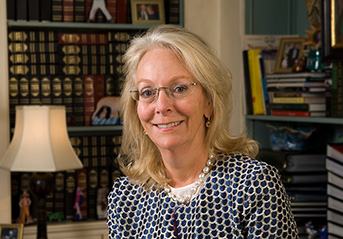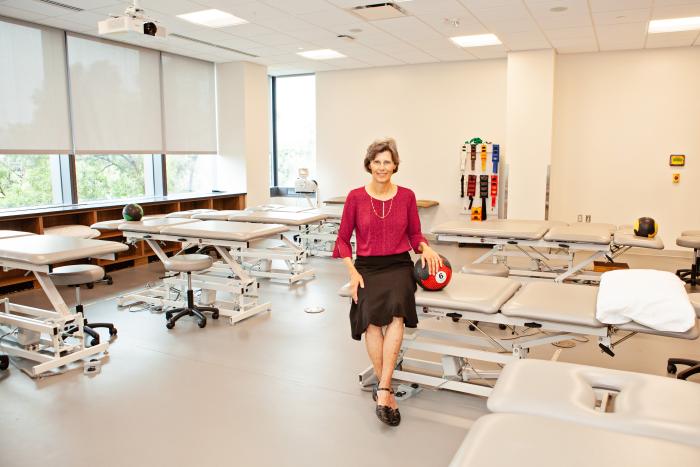Navigating the Seas of Mental Health
Martha Estes Grover knows firsthand what it’s like for a family to find itself lost at sea after a mental illness diagnosis. At age 20 her brother, Michael, was diagnosed with schizophrenia. She was 13 years old and the family needed a life raft but didn’t know where to turn.

Photo Credit: Kevin Schindler
Their search took them to the Virginia Treatment Center for Children (VTCC) on the MCV Campus of Virginia Commonwealth University, a nationally renowned child and adolescent psychiatric facility serving families throughout the state. VTCC is the pediatric division of the Department of Psychiatry in the VCU School of Medicine.
Since 1956, the VTCC has made a profound difference in the lives of families, like the Estes’, searching for help with mental health issues. Addressing depression and autism spectrum disorder, to anxiety and behavioral problems and more, the center has provided inpatient and outpatient clinical care, research programs, and teaching opportunities.
“When we lost Michael at age 49, I knew I wanted to give back to the mental health arena,” Grover says. She became reacquainted with the VTCC not long after her brother died and has been involved in fundraising efforts to build a new facility ever since. She and campaign committee co-chair, Eva Teig Hardy, are dedicated not only to raising money, but working to erase the stigma of mental illness along the way.
“We’ve raised roughly $60 million of the $65 million goal,” Grover says. “A huge part of that funding has been legislative, but there’s still a crucial need for private funding. Mental illness isn’t very flashy, but when there’s a personal attachment to the story, that helps.”
Grover watched her family struggle after her brother’s diagnosis. They didn’t know what to do or how to talk about it.
“It wasn’t something that people talked about, so my parents were left to navigate a process very much alone. There weren’t support groups or people talking about mental illness back then,” she says. “My hope is to give back. I firmly believe in giving back to communities and I was so delighted to reconnect with the VTCC not even knowing it would result in a capital campaign.”
But the need goes beyond the initial campaign, Grover explains. There’s an ongoing need for outreach and programming.
A lot has changed since 1956. There are more and more families looking for assistance, more children ages 3 to 17 in need of services, and more ways to deliver compassionate clinical care. The current facility outgrew its ability to accommodate the growing need for mental health programs dedicated to children and adolescents.
The new facility at the Children’s Hospital of Richmond at VCU Brook Road Campus is expected to be completed by fall 2017 and includes a 32-bed inpatient acute pediatric psychiatric unit, outpatient offices for behavioral health, a Children’s Mental Health Resource Center, and the Commonwealth Institute for Child and Family Studies, the Department’s child psychiatry research institute.
“My brother struggled his adult life and during that time I was especially intrigued with early detection and resources for families,” Grover says. “Mental health management has changed so much over the past 40 years, but the stigma is still very dangerous. Mental illness knows no boundaries. It touches all of us in every sector including pediatrics. That’s where my heart is. That’s where I came from. I want to help people and parents get the tools and resources they need. Along the way we’re building awareness and helping remove the stigma. I tell the story one day at a time over coffee, over lunch, over dinner … whatever it takes to say, ‘here’s what we’re doing and here’s why it’s important,’ it’s incredible. There’s been so much support and I’m grateful.”
And VCU is grateful for Grover’s commitment.
“Martha has been a dynamo by telling her story in the community and encouraging others to support our work,” notes Dr. Joel Silverman, professor and Chair of the VCU Department of Psychiatry. “Her message that mental illness must be acknowledged and treated, rather than hidden, is life saving. She is a wonderful partner. We need more advocates like Martha to advance the science and the treatment.”


